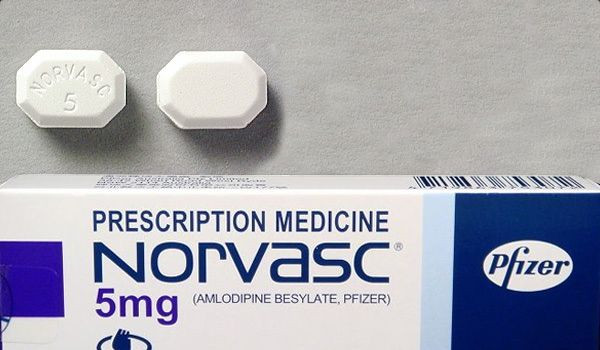Long-Term Use Of Certain Blood Pressure Medications Doubles Breast Cancer Risk: Should Women Switch Drugs?

Calcium-channel blockers, a drug commonly prescribed to manage high blood pressure, was associated with an increased risk in breast cancer diagnoses in women who took them for more than a decade, research shows. However, the study must be replicated before any changes to prescribing guidelines are made.
High blood pressure is a pervasive problem in the U.S., estimated to affect one in three American adults, according to the Centers for Disease Control and Prevention. According to Reuters Health, about 98 million prescriptions for calcium-channel blockers, which are usually taken for life, were written in 2010. Common formulations of these drugs include amlodopine (marketed as Norvasc) and nicardipine (marketed as Cardene).
The study, led by Dr. Christopher Li of the Fred Hutchinson Cancer Research Center in Seattle, was published online by JAMA Internal Medicine. His research team followed women ages 55-74 diagnosed between 2000-2008 with ductal and lobular cancers — the two most common kinds of invasive breast cancer — as well as women without a diagnosis of breast cancer for comparison.
About 40 percent of women in each group took some kind of medication for high blood pressure, although the number who took calcium-channel blockers was much lower. Of the 905 women diagnosed with ductal breast cancer, 85 took calcium-channel blockers, and 25 took them for at least a decade. Of the 1055 women with lobular breast cancer, 91 took calcium-channel blockers, and 26 took the drug for at least a decade. In contrast, of the 891 women without a breast cancer diagnosis, 70 were prescribed calcium-channel blockers, and only 11 took them for at least a decade. These numbers roughly translate to a 2.4 to 2.6 times higher risk of cancer among women who have taken the calcium-channel blockers for at least a decade.
There was no association between higher risk for breast cancer and other types of anti-hypertension drugs, such as diuretics or beta blockers. Researchers did not investigate as to why calcium channel blockers might yield different outcomes, but speculate that the drug's mechanism might disrupt abnormal cells' ability to self-destruct.
In an accompanying editorial, epidemiologist Patricia Coogan, recommends that women who are already taking calcium channel blockers continue to take them. After all, uncontrolled high blood pressure carries its own risks, including developing heart disease, kidney failure, or stroke.
"The most important thing is to have people manage their hypertension the best they can," Li told Reuters.
Sources: Coogan PF. Calcium-Channel Blockers and Breast Cancer: A Hypothesis Revealed. JAMA Internal Medicine. 2013.
Li CI, Daling JR, Tang MC, Haugen KL, Porter PL, Malone KE. Use of Hypertensive Medications and Breast Cancer Risk Among Women Aged 55 to 74 Years. JAMA Internal Medicine. 2013.
Published by Medicaldaily.com



























